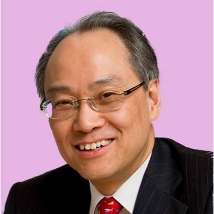To celebrate the 50th birthday of the City Hall Concert Hall on March 2nd, the Hong Kong Philharmonic Orchestra chose a programme of short but diverse works with undulating emotional appeal. Star soloist for the evening was cellist Yo-Yo Ma, returning three and a half decades after his debut here.
Under the baton of Lan Shui, the evening began with Brahms’ Academic Festival Overture. Composed, almost reluctantly, to thank Breslau University for awarding him an honorary doctorate, the overture is cheerful and light-hearted – and as if to atone for this flippant aberration, he wrote the antithetical Tragic Overture in the same year. The string section on Friday sounded fragmented at the beginning, with conductor Lan Shui having to hew at the rough edges to mould it gradually into a silky whole in the lyrical passages. He was right in emphasising the “academic” rather than the “festival”, but he could have allowed a stronger sense of fun. After all, it was a birthday concert.
After some shifting of chairs and music stands, Yo-Yo Ma joined eight players from the Hong Kong Philharmonic in Uzbek composer Dmitri Yanov-Yanovsky’s Night Music: Voices in the Leaves. Written in 2000 for Ma’s Silk Road Project, the work is in essence a cello nonet. Eerie atmospheric sounds on percussion opened the way for some impassioned wailing on the cello with a sprinkling of assistance from flute and clarinet. As the ambience built up to an electric climax, Uzbek women singing melodies with Japanese tonal qualities chimed in on tape, to complete a truly emotional, if introspective, experience.
As if trying to shake off the lugubrious introspection of Night Music, Lan Shui launched into Prokofiev’s “Classical” Symphony after the intermission with vehemence. A short, quaint and sweet work written almost as an exercise and experiment while Prokofiev was in the country without the use of a piano, the symphony is inherently mirthful. Under Lan Shui, it was more spritely and elegant than ever. Liberally borrowing from predecessors in the Classical period – there are parallels with the symphonies of Haydn – Prokofiev injected his own tricks to make the work uniquely his own. For a start, the third movement is a gavotte rather than the more usual minuet and trio, and Haydn would have considered the timpani too subdued. The orchestra, incidentally, grasped the rather swirling rhythm of this stately dance well. Quacking bassoons gave the first movement a mischievous edge; meandering flutes and clarinets in the second movement were relaxing, like an evening stroll in the park; and the final movement, with a simple theme repeated in quick steps, took us on a gallop in the Caucasus.
The magic of Yo-Yo Ma is not only his virtuosity, but his ability to make his instrument sing and behave as an extension of him. The Schumann Cello Concerto in A Minor on Friday gave him ample opportunity to demonstrate the cantabile quality of his technique. Interpretation of the work has been the subject of some discussion over the years, with many performers ignoring the composer’s markings in the score and taking matters into their own hands, often with disastrous results. Yet Ma’s performance with the Hong Kong Philharmonic was so smooth and natural that it made me wonder what all the fuss was about.
Make no mistake, Ma was in the driver’s seat from the moment he laid out the first theme after the woodwind and string pizzicato chords. The lyricism was luminous but not dazzling. Intense and fully immersed though he was in his part, he never lost sight of the orchestra; nor was he ever overpowering. He regularly looked over his shoulder and smiled at different players to acknowledge their support. The duet with the principal cellist, Richard Bamping, was gentle and caring; and the repartee with the orchestra was seamless. The orchestration was nothing like what critics have called “dense” and “string-heavy”. In fact, the strings were acquiescent, while the horns and woodwinds showed great sensuality and poise.
The encore was Träumerei with a twist – Ma and Bamping started as a duo, but Ma soon walked to the back to join the other players as the orchestra started up Happy Birthday. After more rounds of applause, Ma served up the Prelude from Bach’s Suite no. 1 for unaccompanied cello, bringing the house down, so to speak, at its birthday party.


